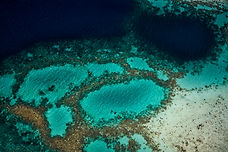
Pacific Conservation Database
BIODEV2030 Fiji project
PIRT Member organisations
International Union for the Conservation of Nature - Oceania Regional Office (IUCN-ORO)
Other partner organisations
Fiji Ministry of Agriculture
Fiji Ministry of Forestry
Fiji Ministry of Environment
Fiji Ministry of Fisheries
Fiji Development Bank
NGO partners
Countries of implementation
Fiji
About
BIODEV 2030 Initiative is an innovative approach with the aim to focus on mainstreaming biodiversity through sector-based commitments emerging from multi-stakeholder dialogue in pilot countries to reverse the curve and promote more sustainable and resilient economies.
IUCN collaborates with Expertise France and WWF-France to catalyze the BIODEV2030 initiative. Funded by the French Development Agency (AFD), the project strives to mainstream biodiversity into key economic sectors in 16 pilot countries (8 operated by IUCN, 8 operated by WWF) through the development of ‘sectoral voluntary commitments”. Fiji is the only participating country in the Oceania region being implemented by the International Union of Conservation of Nature Oceania Region Office (IUCN - ORO) in collaboration with the Ministry of Environment Fiji.
At country level, the project aims to foster commitments and clear accountability mechanisms that bring about change. The project uses an adaptation of the DPSIR (Driver, Pressure, Impact & Response) framework that is structured by diagnostic, dialogue and dissemination phases (‘3D approach’).
The project during its diagnostic phase has produced two reports:
1. Report on National Threats to Biodiversity and Main Drivers Loss (Identified Agriculture & Coastal Fisheries sectors causing threats to biodiversity
2. Report on Scenarios and strategy for the Engagement of Actors in Agriculture and Coastal Fisheries Sectors for Biodiversity Conservation in Fiji (Identified subsector for identified kava sector and overfishing in coastal fisheries for intervention)
In-addition created multi-stakeholders dialogue involving stakeholders around Kava and coastal fisheries stakeholders for biodiversity conservation.
This dialogue has catalyzed draft voluntary commitments that will be finalized in November 2022 to reduce pressures on biodiversity over the next decade. Such voluntary contributions will be a big step towards building ambitious common goals to halt the decline in biodiversity by 2030 and restore biodiversity by 2050.
Framework Action Tracks
01 – Our people at the centre of conservation action, 05 – Nature-based Solutions (NbS) to sustain our social-ecological systems, 10 – Terrestrial ecological integrity, 11 – Reducing threats to threatened and migratory marine species, 12 – Reducing threats to threatened and migratory terrestrial species, 13 – Ending unsustainable fishing, 16 – Battling invasive species, 19 – Science and traditional knowledge for target-setting and monitoring
Status
Completed
